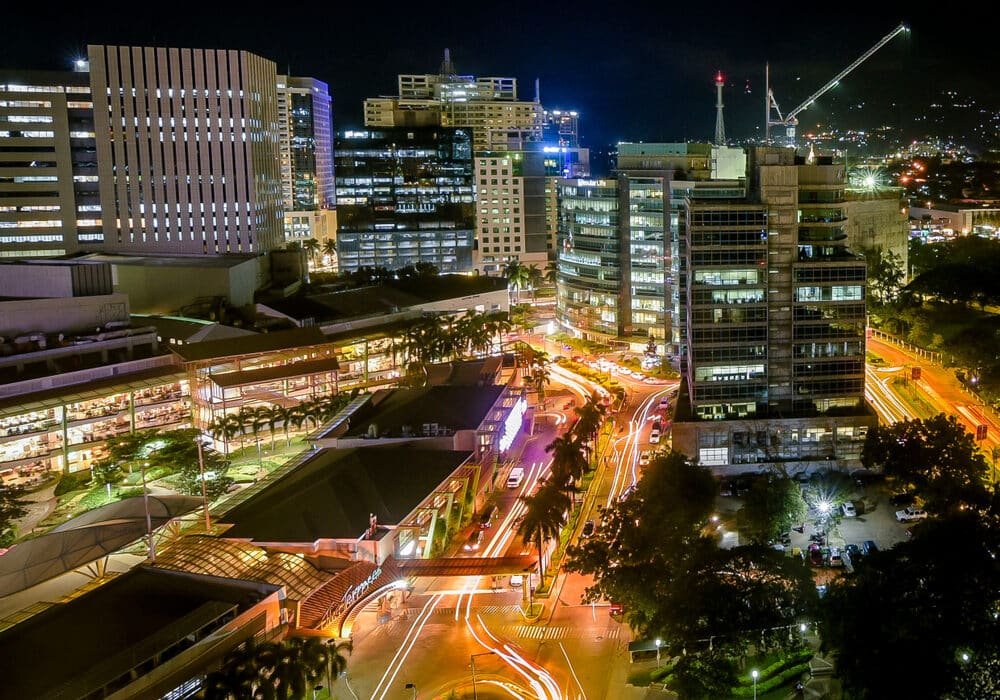Cebu enters 2025 on solid economic footing, driven by steady GDP gains and a resilient post-pandemic recovery. Its tourism, manufacturing, real estate, and IT-BPM fields continue to fuel employment and local enterprises. With strong industry momentum, the province is well-positioned to sustain its progress and navigate future opportunities.
The island’s economy reached a significant benchmark in 2023, with a GDP of P1.01 trillion, making up 73% of Central Visayas’ total output. According to the Philippine Statistics Authority, Lapu-Lapu City led growth at 9.4%, followed by Cebu City at 8.3% and Mandaue City at 7.3%.
(Also read: Mandaue to Launch Cebu’s First EV Charging Station)
Major growth contributors
Tourism remains a main economic driver in Cebu, bolstering local businesses and employment opportunities. The island ranks second to Manila as the most active gateway for international travelers.
By September 2024, Cebu had welcomed three million tourists, generating P38 billion in revenue. The Department of Tourism recorded a 10% rise in visitor numbers from 5.45 million in 2023 to 5.94 million in 2024.
Analytics firm BMI projects the Philippines will welcome 8.3 million tourists in 2025, a 38.4% annual increase. Cebu stands to gain from this surge due to its prime location and popular attractions. Ongoing upgrades to Mactan-Cebu International Airport further strengthen its role as a key transit hub.
Meanwhile, the IT and Business Process Management (IT-BPM) sector remains a major player in its economy as global demand for outsourcing rises. According to Jack Madrid, president of the IT and Business Process Association of the Philippines (IBPAP), the industry is set to improve despite rising costs and increasing global competition.
The province also benefits significantly from its diverse manufacturing industry, which includes electronics, furniture, food processing, and shipbuilding. Cebu’s prime location, skilled labor force, and cost-effective workforce make it a desirable spot for manufacturing investments.
Overall, Cebu’s industry leaders remain optimistic about the region’s progress. Mark Anthony Ynoc, president of the Mandaue Chamber of Commerce and Industry (MCCI), is confident that 2025 will outperform the previous year, saying “I believe this year would be way better, since the pandemic.”
Former MCCI president Steven Yu highlighted Cebu’s strong trade sector and easing inflation as drivers of “positive improvements in the daily lives of the general population.”
(Also read: First Gen to Equip Cebu’s Oakridge Business Park with Solar Rooftop)
Reliable energy essential for sustained progress
As business activity grows, so does energy demand, which supports vital services like water, connectivity, security, and healthcare. The Cebu Electricity Rights Advocates (CERA) called for urgent investment in local power plants to cut dependence on external sources, warning that outages could disrupt water, transport, hospitals, and tourism.
Cebu, home to 64% of Central Visayas’ population, drives half of the Visayas region’s total energy demand. However, it relies heavily on imported power from neighboring islands, depending on transmission links and interconnections with Negros, Leyte, Mindanao, and even Luzon to meet its energy needs.
Governor Gwendolyn Garcia reassured stakeholders that the government is working to strengthen Cebu’s energy supply. During a past energy conference, she stated, “If we are to even be able to match the phenomenal growth that Cebu is experiencing right now, we would have to be serious in generating more capacity. That has become a focus and priority for me.”
Accelerating transmission projects, such as the Cebu-Panay-Negros link, could strengthen the region’s power supply. Meanwhile, solar farms are being developed in Daanbantayan, Dumanjug, and Toledo to support Central Visayas’ growing power demands.
However, due to the grid’s capacity limitations and the inconsistent output of renewable energy, expanding baseload power remains essential to meet Cebu’s growing electricity demand. In response, Therma Visayas Inc. (TVI) revealed plans last year to add a third unit.
Cebu’s continued prosperity depends on strengthening its energy infrastructure to support its expanding population and essential services. By investing in sustainable power solutions and enhancing energy security, the province can drive long-term growth, foster innovation, and set a benchmark for resilience, ensuring a stable and thriving future for its communities.
Sources:
https://tribune.net.ph/2024/03/26/cebus-economic-growth-and-impending-energy-crisis


